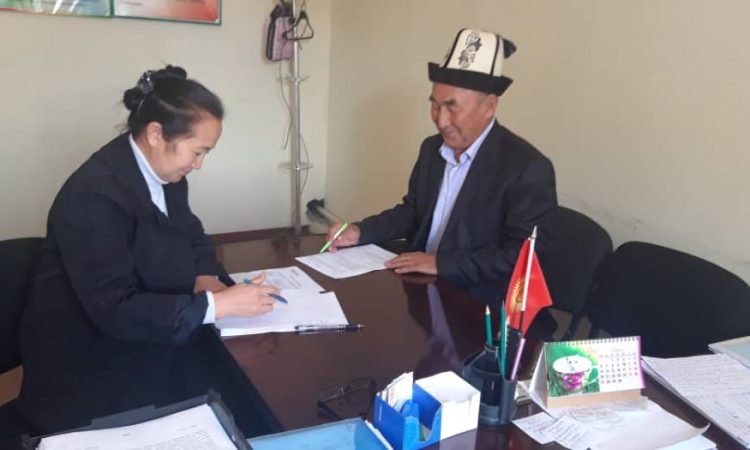Mr.Khait Aikynov, a resident of the Batken region, completed the Basic Mediation Course organized last year with support from the USAID-IDLO Trusted Judiciary program. As a member of an Aksakal court (court of elders), he wanted to explore new dispute resolution models.
“The mediation approach expands the range of possibilities, and most importantly, it increases the responsibility of the parties, forcing them to make a mutually-beneficial final decision,” says Aikynov.
He claims his new mediation knowledge enabled him to successfully resolve a dispute between two neighbors that had lasted more than 20 years.
“Twenty years ago, the residents of Batken received their land shares. One of the allocated parcels was located near the central road. At that location, one of the residents built a car repair service. Business flourished: a good location was one of the success factors. Problems, however, started a few years later. It turned out that the owner of the car repair shop had built the shop on his neighbor’s land. Of course, the rightful owner began to claim the profitable land,” says Aikynov.
According to the mediator, residents were supposed to have carefully studied the map during the initial stage (after the allocation).
“But then, the villagers by virtue of their legal nihilism, established approximate boundaries of the plots without going into details, especially since the plots adjoined each other. So the legal owner of the land discovered a discrepancy with the map only when collecting permits for building a house after several years. After that, he demanded the establishment of legal boundaries,”Aikynov explains.
However, it was not easy to return the plot: the owner of the car repair shop believed that he had invested a lot of money in developing the business. The dispute between the neighbors came to a standstill: neither side wanted to make compromises.
“Then the parties went to court. But the judge advised them to use mediation,” Aikynov notes.
The mediation procedure lasted a month and as a result, the parties came to an agreement. The owner of the car workshop is returning the plot to the rightful owner, absorbing his own expense, and the rightful owner of the site is not pursuing his claims against the other for using the site for 20 years.
“It is difficult to imagine that such an agreement could be reached in court, where a verdict is issued in favor of only one of the parties,” says Aikynov.
The Law on Mediation, which entered into force in February 2018, gave impetus to the development of mediation in the Kyrgyz Republic. During this period, mediators held the first congress and created the National Community of Mediators (NCM).
The USAID-IDLO Trusted Judiciary program helped develop special training guides and train mediators. More than 80 people attended four basic mediation training courses and the program also supported two additional trainings on restorative mediation.
Armed with their acquired knowledge, the participant-mediators further examined and resolved 23 cases on family disputes, mostly concerning the payment of alimony and child custody. Another nine cases concerned the division of property and debt repayment, and one case concerned dividing a company between two founders.
According to the Head of the NCM, Ms.Gulsina Kozhoyarova, the Trusted Judiciary Program’s support has been essential in establishing and strengthening the institution of mediation.
“We are ready to raise development of mediation to a new level now,” she said.
According to Mr. Aikynov, mediation opens up new possibilities for resolving disputes and conflicts.
“Mediation is clear for our people. Aksakal courts (courts of elders) are based on the recognition of the authority of the elders, while in mediation, although the dispute is also resolved with the help of a neutral person, the final decision is made by the parties to the dispute. This increases their responsibility,” Aikynov said.
Mr.Aikynov is confident that the development of mediation will reduce conflicts in society, which, ultimately, will lead development of the country in a constructive direction.




